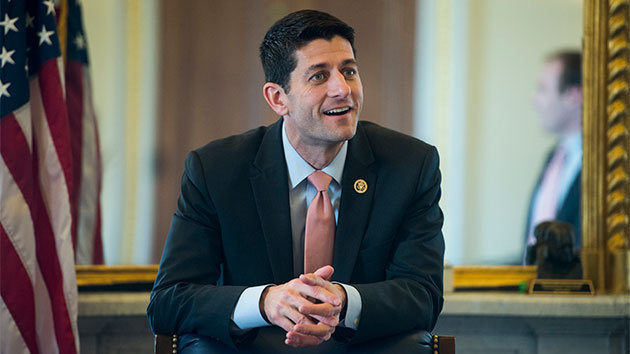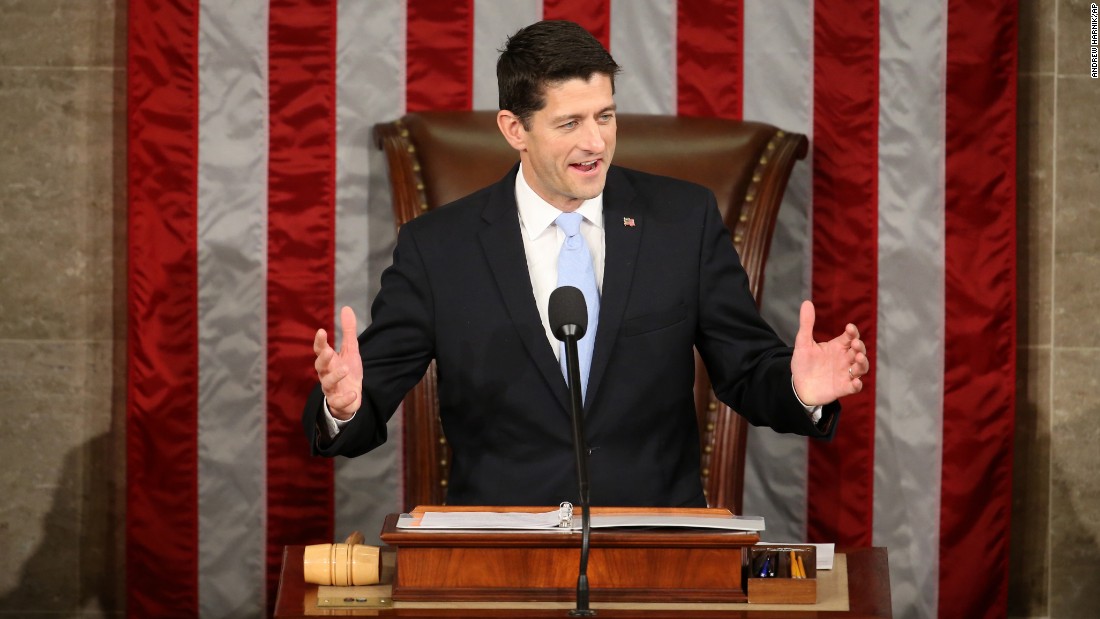[fblike]
 For the last several weeks the House Republican caucus was in turmoil over who would succeed Speaker of the House John Boehner. Boehner’s second-in-command, Majority Leader Kevin McCarthy of California, was pegged as his successor, but McCarthy’s gaffe about the Benghazi Committee’s intentions and his inability to win over House conservatives forced him to withdraw. McCarthy’s decision left House Republicans without a moderate alternative to conservative interests championed by the House Freedom Caucus so they went to the Chairman of the House Ways and Means Committee, Paul Ryan, to gauge his interest in running. Ryan had initially said that he had little desire to become speaker, arguing that he preferred policymaking instead of leading and controlling Republican votes in the chamber. However, after a plea from Boehner and other Republican leaders, and after receiving endorsements from conservative Republicans, Ryan agreed to take the job, thereby becoming the youngest Speaker of the House since the 1860s. Considering that Ryan has a lot of policy experience and has a reputation for compromise, observers are hoping that relations between the White House and the House of Representatives can be improved, and some Republicans hope that Ryan can craft some much needed policy alternatives.
For the last several weeks the House Republican caucus was in turmoil over who would succeed Speaker of the House John Boehner. Boehner’s second-in-command, Majority Leader Kevin McCarthy of California, was pegged as his successor, but McCarthy’s gaffe about the Benghazi Committee’s intentions and his inability to win over House conservatives forced him to withdraw. McCarthy’s decision left House Republicans without a moderate alternative to conservative interests championed by the House Freedom Caucus so they went to the Chairman of the House Ways and Means Committee, Paul Ryan, to gauge his interest in running. Ryan had initially said that he had little desire to become speaker, arguing that he preferred policymaking instead of leading and controlling Republican votes in the chamber. However, after a plea from Boehner and other Republican leaders, and after receiving endorsements from conservative Republicans, Ryan agreed to take the job, thereby becoming the youngest Speaker of the House since the 1860s. Considering that Ryan has a lot of policy experience and has a reputation for compromise, observers are hoping that relations between the White House and the House of Representatives can be improved, and some Republicans hope that Ryan can craft some much needed policy alternatives.
This topic brief will provide some biographical information about Ryan, analyze his legislative priorities, and explain how his leadership could be a boon for Republicans in the 2016 elections and beyond.
Readers are also encouraged to use the links below and in the related R&D to bolster their files about this topic.




 Here is today’s premium R&D to accompany
Here is today’s premium R&D to accompany 
